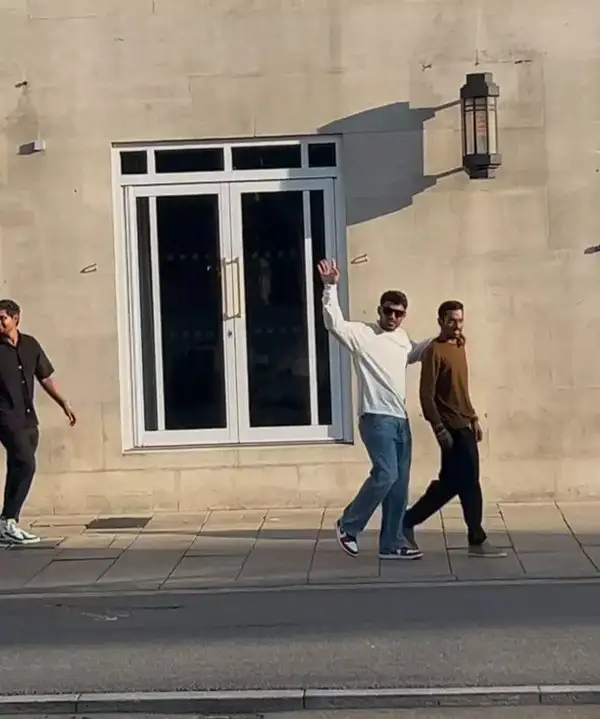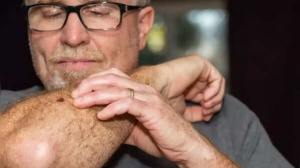The recent, sudden demise of actress and model Shefali Jariwala, best known for her appearance in the early 2000s hit song "Kaanta Laga," has sent shockwaves through the entertainment industry. Reports indicate that she suffered a sudden cardiac arrest on the night of June 27th and was declared dead despite being rushed to a Mumbai hospital. She was only 42 years old.
While the exact cause of death is yet to be officially confirmed, initial reports point towards sudden cardiac arrest, a critical condition where the heart unexpectedly ceases to function. This tragic event serves as a stark reminder that cardiac arrest is not solely a concern for the elderly or those with pre-existing heart conditions. The body often provides subtle clues that, while easily dismissed, can be crucial for timely intervention.
Here are five often overlooked warning signs of sudden cardiac arrest:
Feeling tired after a demanding day is normal. However, unexplained fatigue that arises without a clear reason, feels unusually intense and prolonged, and persists despite rest warrants attention.

The American Heart Association identifies unexplained fatigue as a potential early symptom of heart problems, especially in women. Individuals who experienced cardiac arrest have reported a draining tiredness in the days or weeks leading up to the event. This fatigue may not manifest as mere sleepiness but rather as a pervasive loss of energy. If your body feels unusually sluggish, even during simple activities like walking or climbing stairs, it's crucial not to dismiss it as "just tiredness."
Contrary to popular belief, cardiac events don't always begin with sharp chest pain. Instead, they often manifest as a more subtle sensation of tightness, fullness, or an unidentifiable discomfort in the chest.
This is particularly true for individuals under 50 and women, where symptoms may differ from the classic "clutching-the-chest" portrayal. Some describe it as a feeling of heaviness, like a constricting belt across the chest or an invisible weight pressing down. Such sensations should not be readily dismissed as gas, muscle strain, or stress. If this feeling arises suddenly or intensifies with exertion, it could indicate that the heart isn't receiving sufficient oxygen, a precursor to cardiac arrest.
Experiencing a rapid heart rate after exercise or stress is normal. However, an abnormally fast or slow heartbeat, or skipped beats without any apparent cause, should be investigated.

This condition, known as arrhythmia, is frequently observed in individuals before experiencing cardiac arrest. It can manifest as palpitations, a fluttering or pounding sensation in the chest. In some instances, it may be asymptomatic and only detectable through medical tests. These rhythm changes are particularly concerning when they occur during rest or sleep, or when accompanied by dizziness or shortness of breath. This suggests potential electrical misfirings in the heart, a critical factor in cardiac arrest.
Breathlessness isn't always indicative of lung problems. In many cardiac cases, particularly before sudden cardiac arrest, individuals experience a peculiar breathlessness that seems disproportionate to the situation.
This can occur even while at rest or engaging in light activities. It might feel like an inability to fully "catch" one's breath, despite seemingly healthy lungs. Some individuals may also experience mild chest discomfort or light-headedness. This occurs because a compromised heart struggles to pump effectively, leading to a drop in oxygen supply and subsequent breathing difficulties. This symptom may surface days before a major cardiac event, providing a crucial window for intervention.
While dizziness can stem from various harmless causes, sudden unexplained dizziness, especially when accompanied by nausea, sweating, or paleness, should not be ignored.
Cardiac arrest often results in reduced blood flow to the brain. When the heart's pumping action is compromised, the brain quickly detects the deficiency. This leads to dizziness, confusion, and, in some cases, temporary blackouts. Many cardiac arrest survivors have reported experiencing fainting spells or feeling faint in the days prior to the event but did not associate it with their heart. These episodes can serve as warning signs, particularly for individuals with no prior history of such issues.
[This article is based on available reports and health guidelines]
Newer articles
Older articles
 Team India Settles in Birmingham: Rahul's Mattress, Coaches' Strolls, and the Enduring Coffee Ritual
Team India Settles in Birmingham: Rahul's Mattress, Coaches' Strolls, and the Enduring Coffee Ritual
 Android Users Urged to Patch Devices Immediately Following Critical Security Flaws Alert
Android Users Urged to Patch Devices Immediately Following Critical Security Flaws Alert
 Ashada Gupt Navratri 2025: Dates, Auspicious Timings, and Esoteric Significance Explained
Ashada Gupt Navratri 2025: Dates, Auspicious Timings, and Esoteric Significance Explained
 JPG to PDF: A Graphic Designer's Guide to Conversion & Best Practices
JPG to PDF: A Graphic Designer's Guide to Conversion & Best Practices
 Skin Cancer Alert: How to Identify Suspicious Moles and Early Warning Signs
Skin Cancer Alert: How to Identify Suspicious Moles and Early Warning Signs
 IRCTC's AskDisha 2.0: AI Chatbot Streamlines Train Ticket Booking, Refunds, and Travel Information
IRCTC's AskDisha 2.0: AI Chatbot Streamlines Train Ticket Booking, Refunds, and Travel Information
 The stat that could swing every NBA team's 2025-26 season
The stat that could swing every NBA team's 2025-26 season
 Bollywood's Mythological Muse: How Indian Epics Inspire Cinematic Storytelling
Bollywood's Mythological Muse: How Indian Epics Inspire Cinematic Storytelling
 Bollywood Flashback: Jackie Shroff Accused of Untoward Advance on Young Tabu at Danny Denzongpa's Party
Bollywood Flashback: Jackie Shroff Accused of Untoward Advance on Young Tabu at Danny Denzongpa's Party
 Popular Finance YouTuber's Account Hacked: Bitcoin Scam Alert and Security Tips
Popular Finance YouTuber's Account Hacked: Bitcoin Scam Alert and Security Tips